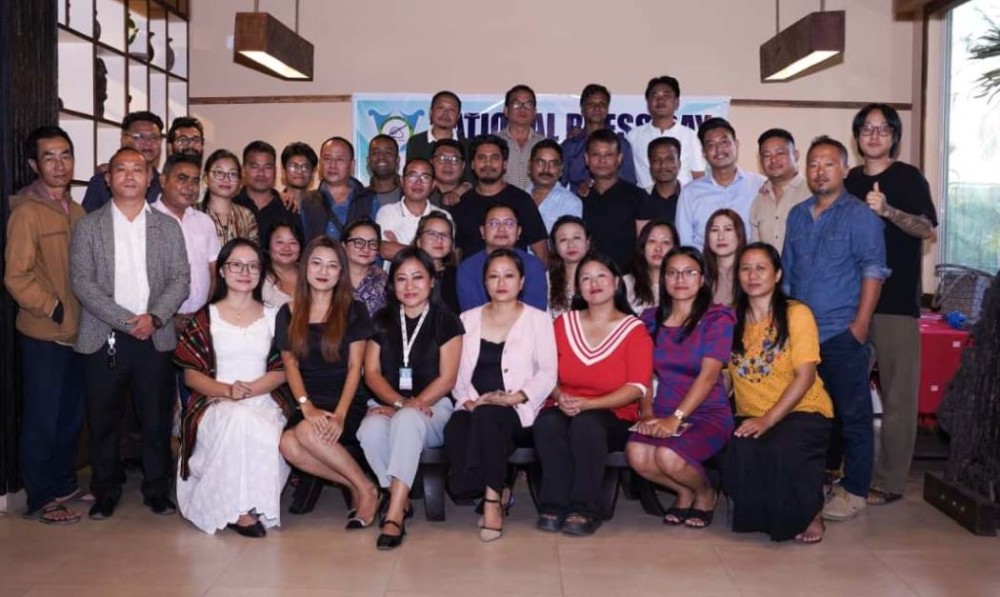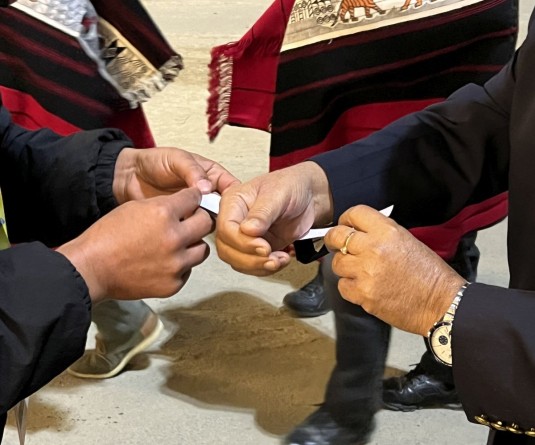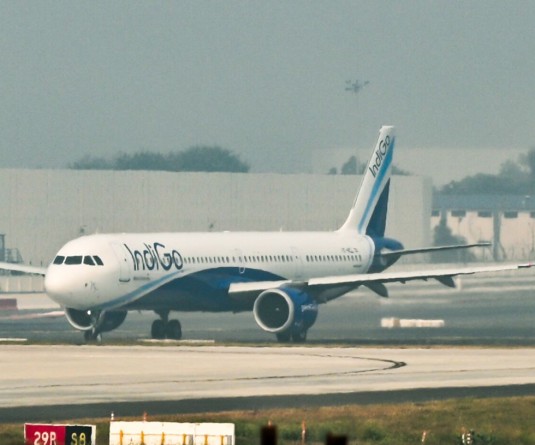Members of the Dimapur Press Club during the observance of National Press Day 2025 at Ethnic Table, Notun Bosti, Dimapur, on November 16.

Dimapur, November 16 (MExN): The Dimapur Press Club observed National Press Day 2025 on November 16 with a keynote address by Dr Moalemba Jamir, Associate Editor of The Morung Express, who urged journalists to confront structural challenges in the profession and rebuild credibility through transparency, verification, and ethical discipline.
Dr Jamir said credibility remains journalism’s most vital asset and outweighs platforms, technology, or traffic. The information landscape, he noted, has changed sharply, with news, political messaging, rumours, entertainment, and promotional content appearing side by side in similar formats. In such an environment, the responsibility to remain “credible, fair, transparent, and accurate” has become even more urgent, making the day’s theme “a matter of professional survival.”
On transparency, he said credibility begins with clarity about who a newsroom is and how it functions. Many digital platforms appear like news outlets but operate without editorial structure, accountability, or even an “About Us” section. This gap, he added, is not limited to new players, as even established media sometimes fall short.
He raised what he called a sensitive issue: the blurring of editorial and commercial lines, particularly the practice of money-for-coverage. The concern, he said, is not favourable reporting but that coverage itself becomes contingent on payment. He cited jubilees, souvenir releases, and departmental events where some outlets request payment for visibility. While it may seem mutually beneficial, he warned this creates “structural misinformation” because the public is misled about why a story was published. Financial pressures are real, he said, but “when basic journalistic duty becomes, even unintentionally, a service-for-hire, it undermines public trust.”
Dr Jamir also highlighted AI-driven misinformation, noting that AI-generated images, altered videos, voice clones, and fabricated texts can be created within minutes and carry serious consequences in contexts involving identity, land, or security. “AI is not the enemy,” he said, but it magnifies weaknesses in verification. If the public cannot distinguish journalism from other content, AI will deepen the confusion.
He outlined related challenges including unregulated digital platforms, the pressure of speed, sensationalism, unlabelled sponsored content, opinion mixed with reporting, and reluctance to correct errors publicly. These practices, he said, collectively erode trust.
As a way forward, he called for reinforced transparency through clear ownership disclosures, published corrections, and strict separation between editorial and commercial work. He recommended guidelines for event coverage, proper labelling of sponsored content, and a public-interest test for free coverage. He also stressed clarifying boundaries between news, opinion, analysis, and advocacy.
On verification, he urged journalists to slow down when needed, recheck sensitive claims, use tools to authenticate images and videos, and document verification steps, calling it “our competitive advantage.” He encouraged collaboration among press bodies on a Media Charter for Nagaland, an ethics committee, transparency audits, and media literacy programmes.
Earlier, in her presidential address, Henlly Phom said the day celebrates the power of a free and fearless press. A short Q&A followed. The programme was chaired by Kekhriésenuo Lily Kiewhuo, with a vote of thanks by Niboli H. Yeptho.




.jpg)

